



Living
Q1 2023 | A promotional supplement distributed on behalf of Mediaplanet, which takes sole responsibility for its content “One in three of us will develop a neurological condition in our lifetime.” Magdalen Rogers, Executive Director, Neurological Alliance of Ireland Page 02 “Knowledge is key when it comes to reducing the stigma around dementia.” Cathryn O’Leary, National Community Engagement Manager, The Alzheimer Society of Ireland Page 06 www.healthnews.ie Over 60s only. Product eligibility criteria apply. Seniors Money Mortgages (Ireland) DAC, trading as Seniors Money, Spry Finance and Spry is regulated by the Central Bank of Ireland.
Giving you peace of mind for the future. A Lifetime Loan from Spry Finance, secured against your house could help you to keep looking after someone you love at home.
with Neurological Conditions
Lifetime Loans from Spry Finance
Providing specialist service interventions for Huntington’s disease requires a more sustainable funding model. However, the HSE must recognise this and contribute to its achievement.
Huntington’s disease (HD) is a hereditary neurodegenerative disorder that can cause different symptoms in an individual’s physical and mental health. The average onset of symptoms is usually between the ages of 30–50, but some may present under the age of 20 (juvenile HD) or after the age of 65.
Effects of Huntington’s disease
Physical symptoms can include difficulties with motor muscle movements and can lead to impairments in speaking, swallowing and walking. Mental health issues can include problems with anxiety, mood, aggression and psychosis. With HD, being aware of and attending to one’s mental health needs is vital.
HD is a rare genetic disorder, and each child of an affected individual has a 50% chance of inheriting the gene. A small number of individuals have no known family history of HD. Approximately 700 individuals in the Republic of Ireland may have HD, and about 2,500 individuals are at risk (Morrison et al, 2010).
Specialist care for Huntington’s
We, at Bloomfield Hospital (an independent charity), are the only facility in Ireland providing specialist residential care for people with Huntington’s disease — it is one of our key service areas.
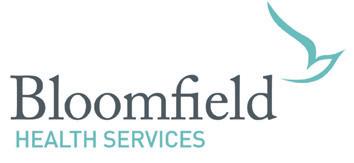
Alongside patient care, we provide family support in collaboration with Huntington’s Disease Association Ireland. We are a Section 39-funded agency; however, we require a more sustainable funding model to provide specialist service interventions for HD.
Minister Butler, Minister for Mental Health recognised us in her most recent visit, and we need the follow-up at the HSE level which we are confident we will receive.
Seeking support and connections
The Huntington’s disease (HD) Café event supports people affected by the disease along with their families and those who care for them. The event is held in partnership with the Huntington’s Disease Association of Ireland (HDAI).
The HD Café is a space for them to connect with other patients, carers, volunteers and healthcare professionals — where they can seek emotional support, education and social interaction. The HD Café is relaunching on the 22nd of March, 19.00 at Bloomfield Hospital.
Kelly Chief Executive, Bloomfield Hospital
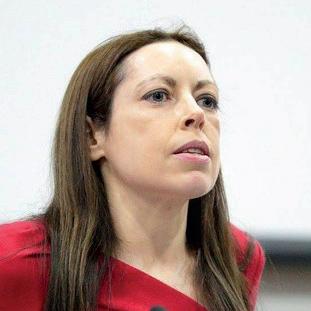
Investing in brain health improves wellbeing and quality of life
Neurological diseases now represent the leading cause of disability-adjusted life years and the second leading cause of death for adults worldwide.
The Neurological Alliance of Ireland (NAI) brings together over 30 nonprofit organisations to advocate on behalf of the 800,000 people in Ireland living with a neurological condition. National Brain Awareness Week is a nationwide advocacy initiative organised and coordinated by the NAI in March each year.
Growing awareness for brain health
The theme of Brain Awareness Week 2023 is the need for investment in brain health, recognising that one in three of us will develop a neurological condition in our lifetime and there is a critical need for our health system to respond to this challenge.
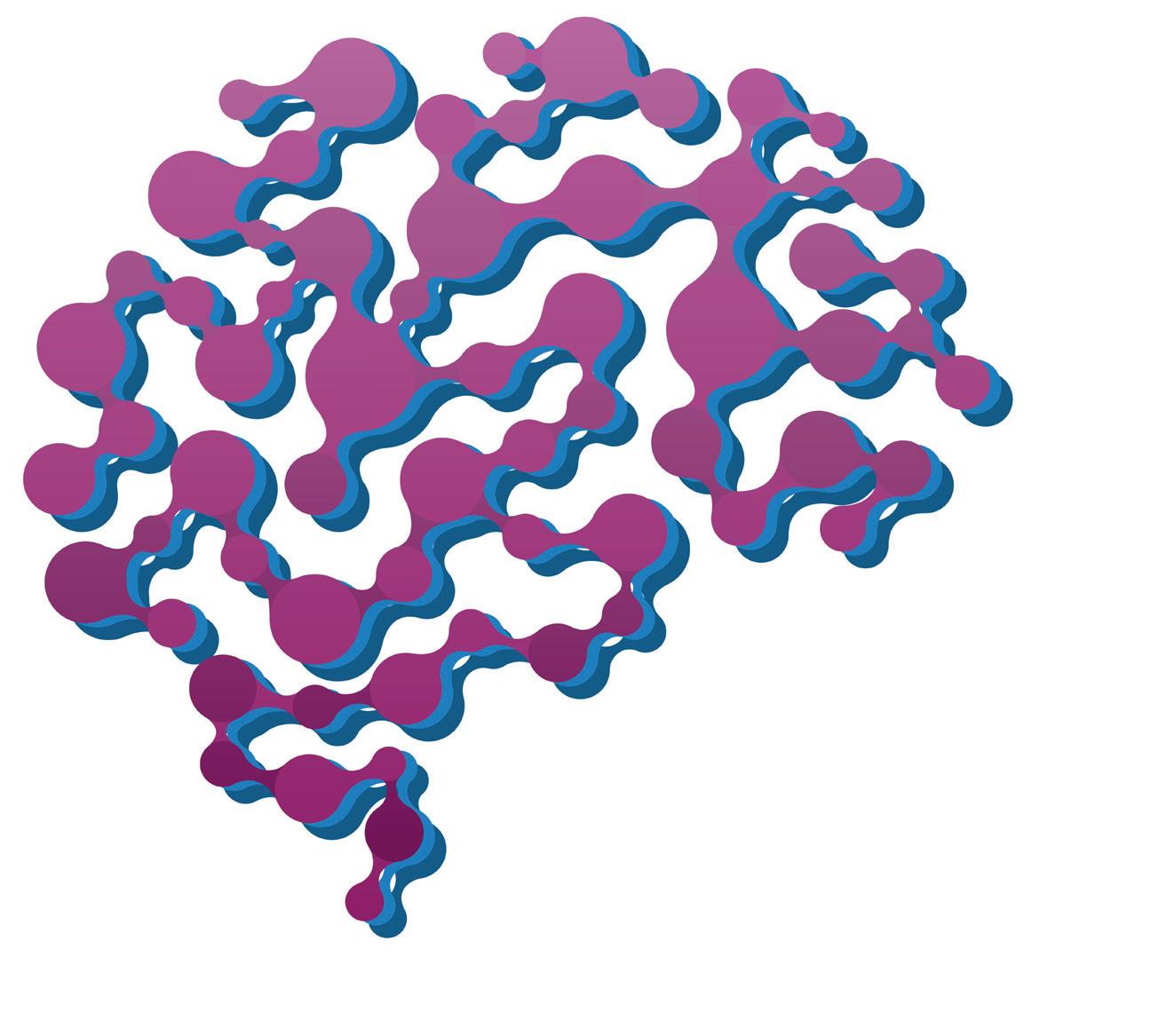
Responding to the challenge of brain disorders
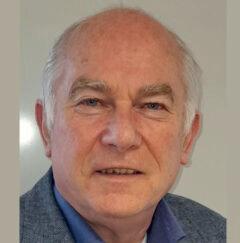
The World Health Organization’s publication of a ten-year framework for Neurological Disorders and Epilepsy in 2022 represents a wake-up call for WHO member countries — such as Ireland — to address the burden of neurological disease.
Ireland will have to overcome serious obstacles if it is to mount an effective response to the challenge of brain health. There is a critical need
to invest in services for the diagnosis, treatment and rehabilitation of neurological conditions as well as a public health approach aimed at reducing the risk of developing preventable neurological diseases.
National action towards brain health
The NAI Patients Deserve Better campaign, a partnership with Roche Ireland which successfully campaigned to secure 23 additional neurology nurse specialists in 2023, is now calling for the establishment of a nationwide network of community neurorehabilitation teams for people living with neurological conditions. Only 15% of Irish neurological patients have access to a community neurorehabilitation team.
Investing in community neurorehabilitation teams improves the function and wellbeing of patients. These teams are also cost-effective, saving up to 42,000 bed days each year. For every euro spent on teams, the health service saves 11 euros.
To learn more, visit nai.ie For more information on the Patients Deserve Better campaign, visit patientsdeservebetter.ie and follow the campaign on social media #patientsdeservebetter
Business Development Manager: Samantha Taylor Managing Head of Ireland: Ross Bannatyne | Head of Print & Design: Thomas Kent Designer: Aimee Rayment Content Editor: Angelica Hackett O’Toole | Head of Digital Operations: Harvey O’Donnell Paid Media Manager: Jonni Asfaha Social & Web Editor: Henry Phillips Digital Assistant: Carolina Galbraith Duarte All images supplied by Gettyimages, unless otherwise specified | Contact information: uk.info@mediaplanet.com or +44 (0) 203 642 0737
Project Manager: Jen Church jen.church@mediaplanet.com
02 READ MORE AT HEALTHNEWS.IE AN INDEPENDENT SUPPLEMENT FROM MEDIAPLANET WHO TAKE SOLE RESPONSIBILITY FOR ITS CONTENT MEDIAPLANET
@HealthnewsIE @MediaplanetUK Please recycle
Magdalen Rogers Executive Director, Neurological Alliance of Ireland
for by Bloomfield
Get in touch: info@bloomfield.ie
Seeking a sustainable funding model for specialist Huntington’s disease services
Paid
Health Services
Joe
Only 15% of Irish neurological patients have access to a community neurorehabilitation team.
This article is endorsed by Roche
Irish neurology nurses call for more investment to support patients
Nurse specialists in neurology are chronically under-resourced, but they are driving change for the estimated 800,000 people living with a neurological condition in Ireland.
With an estimated 40,000 new patients a year being diagnosed with a neurological condition, it’s often a frightening time for patients and their families.
specialist nurses in neurology.
Elaine Quinn Neuroscience partner (multiple sclerosis), Roche Products Ireland Ltd.
 WRITTEN BY James Martin
WRITTEN BY James Martin
Neurology nurses speak out for their patients
The clinical nurses supporting neurology patients provide outstanding care. However, there are not enough clinical nurse specialists in neurology; in fact, there are just 42 in Ireland.
That is why experienced nurses in the field have set up the Irish Neurology Nursing Forum (INNF) — to call for better resourcing, more funding for education in the speciality, healthcare provision and support for patients and their families.
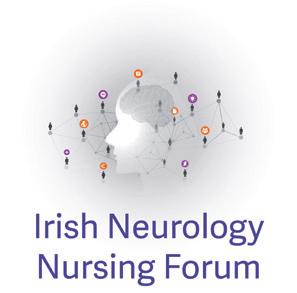
Lack of specialist nurses in neurology
The recently formed INNF is already making progress. Set up to mobilise change nationally, they played a key role as part of last year’s Patients Deserve Better Campaign, which succeeded in securing 23 additional specialist nursing posts which were announced by Minister of State for Disability Anne Rabbitte in the 2023 budget.
The two cofounders of the INNF, Máire Hayes and Sinead Jordan, both neurology nurse specialists, worked with the Neurological Alliance of Ireland (NAI), 15 of its member organisations and Roche Ireland, to highlight the shortage of
Jordan recalls: “At the time of the Patients Deserve Better Campaign in 2022, 23,000 people were waiting for a neurology outpatient appointment — and 8,000 of those waiting more than 18 months — meaning huge delays in diagnosis and treatment. Investing in more neurology nurse specialists will reduce waiting times and Emergency Department presentations, free up capacity for consultants and ensure patients across the country have access to the specialist support they need. It will also align with the Sláintecare vision to expand services.”
Hayes adds: “The awareness campaign has been really positive in shedding light on the lack of neurology nurse specialists. The €1.7m funding commitment is a great first step. However, we still need another 80 specialist nurses, which we hope will be provided over the next few years. In the meantime, we invite all neurology nurses to join the INNF.”
Jordan highlights: “There are 10,500 people living with multiple sclerosis in Ireland but just 24 trained specialist nurses in that area. Extraordinarily, there are only four for Parkinson’s patients.”
Training and development for neurology nurses
Another problem is there is no formal postgraduate course for neurology nurses in Ireland, affecting recruitment. “We have to go to the UK to gain specialist
training, whereas we need training on the ground in Ireland to entice graduate nurses into our speciality,” says Hayes.
To this end, we are collaborating with Professor Orla Hardiman, National Clinical Lead of Neurology, in the design and development of a postgraduate neurology course. Graduate nurses will be able to study for the speciality through continuous education modules leading to the required level 9 qualification.”

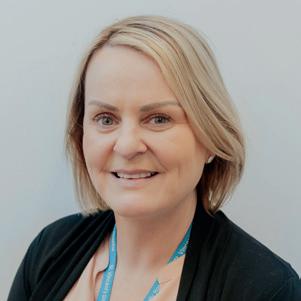
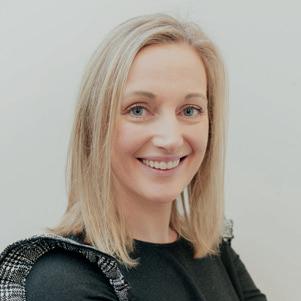
Roche Ireland is committed to supporting nurse specialists in neurology. “Their refreshing approach to partnership has been instrumental in getting the INNF established,” says Hayes. “They also support our training and development.”
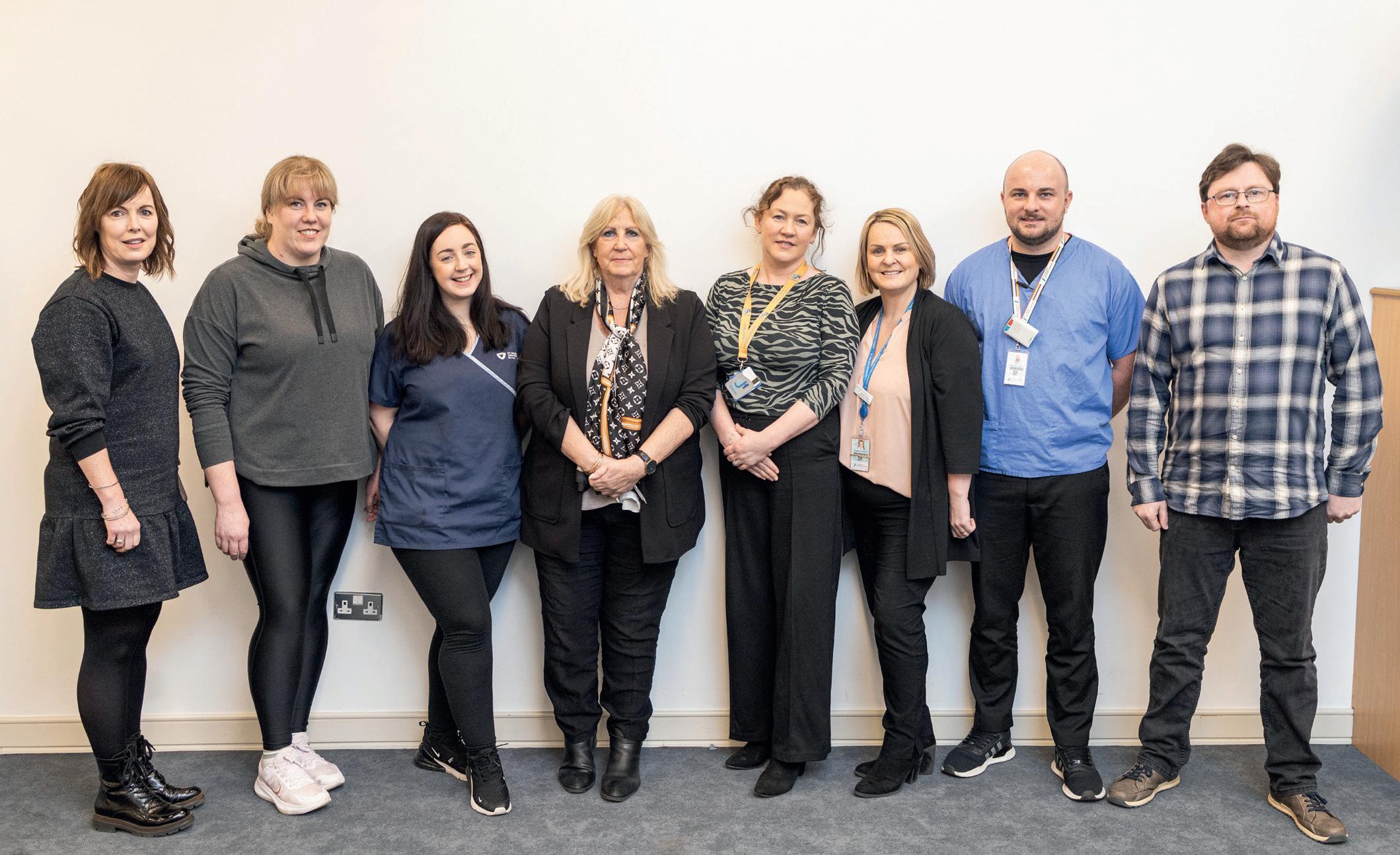
Jordan says: “The INNF will give a stronger voice to neurology nurses by enabling them to better advocate for themselves, particularly in addressing challenges with capacity, resourcing, education and policy.”
Invest in neurology nurses to reduce backlogs Elaine Quinn, neuroscience partner at Roche, concludes: “People with neurological conditions have a multitude of complex needs that call for a coordinated, holistic approach. If there is more awareness of the value nurses bring to the wider neurology team and the need to recruit extra nurses, we can change the course of their lives.”
If you are a neurology nurse, please join the INNF by emailing innforum1 @gmail.com
MEDIAPLANET READ MORE AT HEALTHNEWS.IE 03 AN INDEPENDENT SUPPLEMENT FROM MEDIAPLANET WHO TAKE SOLE RESPONSIBILITY FOR ITS CONTENT
Paid for by Roche
There are 10,500 people living with multiple sclerosis in Ireland but just 24 trained specialist nurses in that area.
Sinead Jordan Advanced Nurse Practitioner for multiple sclerosis at St. Vincent’s University Hospital, Dublin and Chair/Cofounder of the INNF
Máire Hayes Clinical Nurse Specialist with the Irish Motor Neurone Disease Association and Education Officer/ Cofounder of the INNF
Image provided by Irish Neurology Nursing Forum @innforum1 Irish Neurology Nursing Forum
Gain power over Parkinson’s with an empowering self-management toolkit

Power is the key to maintaining independence and good quality of life. A proactive approach with a tailored plan and tools to empower you on the journey is critical.
The ‘KEES’ toolkit was developed to simplify the key areas and information on the journey to empowerment and self-management of Parkinson’s disease (PD).
Knowledge: what is PD?
Parkinson’s Disease is a progressive neurological disorder. The second most common neurodegenerative disease after Alzheimer’s disease. Parkinson’s affects an estimated 15,000 people in Ireland. It is the loss of a neurochemical called dopamine. As we age, we lose dopamine; but for those with Parkinson’s, it is lost at a faster rate.


It is primarily a movement disorder. However, there are 40 potential motor and non-motor symptoms associated with it. It affects slightly more men than women, with most people diagnosed after the age of 60 and one in ten under 50.
As stated by Bas Bloem: “Seven million people, seven million variants of Parkinson’s. In everyone, the disease manifests itself differently.”1
Education: optimise symptom control
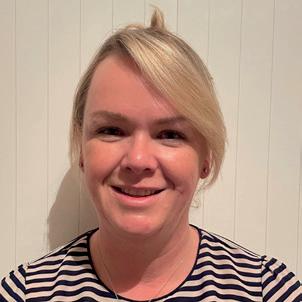
There is currently no cure for Parkinson’s, but medication can provide symptom control. With medication, it’s important to ask: What is the medication? What is it expected to help? How long before you see improvement? What’s the best way to take it? Also, keep a diary.
Three crucial aspects to optimise medication are (1) consistent timing, (2) avoiding constipation and (3) hydration.
Medication alongside relaxation and distraction techniques are key to symptom management. What works for one person may not work for the next, hence a personalised approach and plan.
Exercise: prescribe exercise for all Exercise is essential in the management of motor and nonmotor symptoms. The physical benefits of exercise include addressing balance, gait, rigidity/stiffness and strength. Psychological benefits include building confidence and improving serotonin production, sleep, mood and wellbeing.
Varied exercises adapted to your level of suitability will help. Don’t forget to enjoy it, so you’re more likely to continue rather than avoid it. Some exercises found to be beneficial include Tai Chi, dance, yoga and aqua therapy.
Support: recognise and reach out Ready to recognise the need for support? Reach out and get involved! It can be daunting but is an essential component of the toolkit. This network can come from peer support and the wider circle of health professionals. Parkinson’s Association of Ireland provides a nationwide branch network, in-person and zoom classes and opportunities to participate in ongoing research.
04 READ MORE AT HEALTHNEWS.IE AN INDEPENDENT SUPPLEMENT FROM MEDIAPLANET WHO TAKE SOLE RESPONSIBILITY FOR ITS CONTENT MEDIAPLANET
References 1. Bastiaan R. Bloem, Michael S. Okun, Christine Klein. Parkinson’s disease.The Lancet. DOI: 10.1016/S0140-6736(21)00218-X
Lisa Wynne Parkinson’s Nurse Specialist, Parkinson’s Association of Ireland
Paid for by Parkinson’s Association of Ireland Parkinson’s Awareness week starts 11th April 2023. To find out more visit parkinsons.ie
Medication alongside relaxation and distraction techniques are key to symptom management.
Breen Communications and Information Officer, Migraine Association
Not just a headache: different types of migraine you might experience
Most people assume a migraine is just a headache, but this could not be further from the truth. Migraine is a complex neurological condition with different types.
According to the Global Burden of Disease study, headache disorders are among the most prevalent disabling conditions worldwide. One in ten people in Ireland live with migraine. We must understand the different types of migraine and the symptoms of each.

Most migraineurs suffer migraine without aura
Common symptoms:
• Intense throbbing headache, usually on one side, worsened by movement
• Nausea/vomiting
• Light, noise and smell sensitivity
• Neck and shoulders stiffness
• Blurred vision
Migraine with aura refers to neurological disturbances that occur before the headache, usually lasting 20–60 minutes. Roughly 20% of people with migraine experience ‘aura’ in addition to some or all the symptoms (blind spots, flashing lights, zig-zag patterns).
Aura can also present in other ways with pins and needles, slurring of speech, muscular weakness, loss of coordination or confusion.
Migraine aura with no headache: Approximately 1% experience migraine aura with no headache. Common symptoms are the same as migraine with aura above.
Rare types of migraine some people experience Hemiplegic migraine is a rare form of migraine where the person experiences many common symptoms but may also suffer from temporary numbness, weakness or even paralysis.
Get moving with classes to help manage your Parkinson’s disease
Parkinson’s Disease is incurable. However, there are ways to manage your own condition — a major one being exercise.
Alack of dopamine is a fundamental problem for people with Parkinson’s. Research has shown that while exercising may not increase your dopamine levels, it can make your brain use the dopamine you have more efficiently. Benefits include improved balance and posture, increased muscle strength and flexibility. It can also contribute to healthy emotional wellbeing.
Research-based classes for people with Parkinson’s
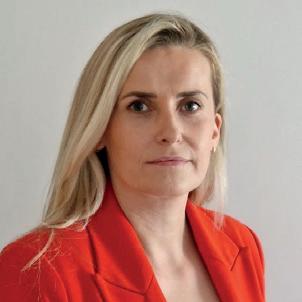
We, at Move4Parkinson’s, provide group classes which have proved beneficial to people living with Parkinson’s. These classes are a great way to meet other people with Parkinson’s, share stories, get support and have fun at the same time.
Our evidence-based exercise programmes include set and modern dance, yoga, mindfulness, pilates and physio-based exercise sessions. These all help to condition the body, build core and spine strength and improve balance and breath efficiency.
Irish set dancing: can help in dealing with symptoms such as freezing gait, balance, and motor disability. It can be even more beneficial than standard physiotherapy and requires absolutely no experience.
Common symptoms of hemiplegic migraine:
• Numbness or weakness on one side of the body (hemiplegia)
• One side of the face can fall which looks like a stroke
• Headache
• Visual disturbance and aura (sparkles, shimmers)
• Tingling in extremities
• Trouble speaking
• Confusion, brain fog
• Ataxia
• Fever
Basilar migraine is a rare type that includes symptoms such as loss of balance, double vision, blurred vision, difficulty speaking and fainting. During the headache, some people lose consciousness.
Ophthalmoplegic migraine is a very rare type that occurs mainly in young people where there is weakness in one or more of the eye muscles. In addition to headache, symptoms include pupil dilation, inability to move the eye up, down or across — and eyelid drooping.

Voices of Hope Choir: people with Parkinson’s voices may grow softer or less intelligible over time, detracting from confidence and quality of life. However, singing can help improve vocal tone and volume. The Voices of Hope Choir is a place to come together in a community of support, positivity and fun. We also offer one-to-one singing lessons to strengthen and maintain voice quality.
Physio-based exercise class: Move4Parkinson’s provide an exercise class facilitated by a physiotherapist and nurse, both of whom specialise in Parkinson’s.
A community of supportive groups
Move4Parkinson’s organises support groups facilitated by a psychotherapist, for people with Parkinson’s, their family members and friends. These groups provide an opportunity for people to come together to get support from others going through similar challenges. Our aim is to educate, empower and inspire people with Parkinson’s to achieve their best quality of life.
MEDIAPLANET READ MORE AT HEALTHNEWS.IE 05 AN INDEPENDENT SUPPLEMENT FROM MEDIAPLANET WHO TAKE SOLE RESPONSIBILITY FOR ITS CONTENT
For more information, visitmigraine.ie
Hazel
of Ireland
Paid for by Move4Parkinson’s
more information, visit
info@move4parkinsons.com
call 01 2950060
Tony Dalton Chairperson, Move4Parkinson’s
For
move4parkinsons.com, email
or
As people live longer with a range of health conditions, lifetime loans are increasingly seen as a safe way to afford their — and their loved ones’ — futures.
Spry Finance is the only lender providing lifetime mortgages in Ireland. CEO John Moriarty says: “We are providing financial choice for customers in the 60-plus age cohort to use the wealth that they have in their homes to assist them in the process of having a comfortable and healthy retirement.
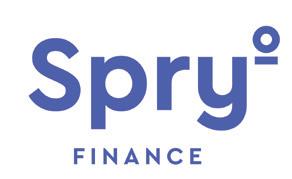

“We do that in a very considered and transparent way. Recognising that they should talk to all their stakeholders, including their families and their advisers.”
What is a lifetime loan?
A lifetime loan is a mortgage loan secured against your home. Borrowers do not sell a share of their homes. They borrow a cash sum using their house as security. This type of loan is designed to last for the rest of their life but may be paid off early.
Unlike a fixed-term mortgage, there are no monthly fees and there is no negative equity. Instead, interest on a borrower’s loan accrues and is paid off at the end of their lives. Customers can choose to pay the monthly interest but are not obliged to.
The average age of a Spry customer is 72, and the median amount they borrow for a Lifetime Loan is €75,000.
Customer-centric process in supporting care
Consumer research, undertaken on behalf of Spry Finance last autumn, found that 19% of people were interested in taking out a lifetime loan to afford care at home.
“This ranges from assisted living and personal care to long-term illness, specialised and palliative care,” explains Moriarty.

“We have a customer-centric process where we put the customer needs and decision-making at the heart of our process. That’s why we take the time to meet face-toface with our customers — to ensure they understand our product and process; and we encourage them to include their family.”
He concludes: “We have a robust vulnerable customer policy and continuously work hard to ensure that our products, services and advice are flexible, accessible and inclusive.”
Why communities should learn how to care for people with dementia
With a growing number of people diagnosed with dementia each year, it has become crucial to educate today’s younger population and give them the tools they need should someone they care for receive a dementia diagnosis.
One-third of young people have someone in their lives who is living with dementia; this may be a grandparent or a neighbour. However, due to the increased incidence of early-onset dementia, it may also be a parent.
Educating younger people about dementia
In Ireland, 63% of people living with dementia live in the community, rather than in nursing homes or hospitals. Hence, we must ensure that we make communities more informed and inclusive.
‘Creating a Dementia Inclusive Generation’ is a new post-primary school programme, developed by The Alzheimer Society of Ireland (ASI) in partnership with the Dementia Services Information and Development Service Centre (DSIDC).
We want to empower and educate the next generation; knowledge is key when it comes to reducing the stigma around dementia and building a more inclusive society for people living with dementia.
The programme will also teach students about brain health, making them aware of modifiable risk factors and empowering them to maintain a healthier lifestyle.
Support for people in the community with dementia
On completion of the programme, students are invited to become peer educators to other students across the school system, sports and community groups — to empower even more young people to be part of ‘Creating a Dementia Inclusive Generation.’
John Moriarty Chief Executive Officer, Spry Finance Ireland
WRITTEN BY James Martin
It aims to educate young people about dementia and the impact that a diagnosis of dementia has on the person living with dementia, their carer and their family. This transition-year programme is designed to educate the younger population and give them a better understanding of dementia.
Breaking barriers with dementia education
The programme aims to increase the younger population’s awareness about the condition’s impact and how they can support people living with dementia in their communities.
Ultimately, we want to remove the stigma associated with dementia. Only then can we create more welcoming and inclusive communities where people living with dementia can live their lives safely and happily.
Cathryn O’Leary National Community Engagement Manager, The Alzheimer Society of Ireland
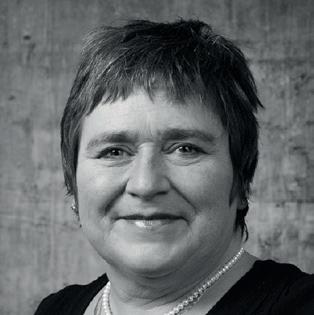
06 READ MORE AT HEALTHNEWS.IE AN INDEPENDENT SUPPLEMENT FROM MEDIAPLANET WHO TAKE SOLE RESPONSIBILITY FOR ITS CONTENT MEDIAPLANET
Lifetime loans are growing in popularity among older people
Paid for by Spry Finance Ireland
Find out more at spryfinance.ie
In Ireland, 63% of people living with dementia live in the community, rather than in nursing homes or hospitals.
To arrange a meeting in person, call (01) 5822 580.
One-third of young people have someone in their lives who is living with dementia.
Finding a way out of pain through the complex brain
Chronic pain is a frequent component of many neurological disorders, affecting 20–40% of patients with many primary neurological diseases.
Unlike acute pain, which is sudden and time-limited, chronic pain persists over many months or years. While acute pain has a protective function, chronic pain is pathological and purposeless.

The brain is the source of pain
From neuroscientific brain imaging research, we now understand that all pain originates not in the body — but in the brain and central nervous system. The brain switches pain on and can turn up or down the pain volume regardless of what is happening peripherally. This explains why people with amputated limbs can continue to feel pain in a missing limb. With chronic pain, the brain undergoes structural and functional changes that mean the pain dial gets stuck at high volume.
A complex experience
The International Association for the Study of Pain (IASP) defines pain as ‘an unpleasant sensory and emotional experience associated with, or resembling that associated with, actual or potential tissue damage.’ This latest definition recognises that pain is an emotional as well as a sensory experience. It also acknowledges the pain many individuals experience where there is no biomedical basis for the onset of pain.
Recovery gone wrong
Pain may originally appear because of an illness or injury where you recover from the initial issue, but the pain remains. This is described as chronic secondary pain where the pain is, at first, a symptom of an underlying condition but then the pain itself becomes the problem. Secondary pain that becomes chronic — that is, lasting more
How home care can add to quality of life
With specialist carers skilled at supporting patients with complex neurological conditions, a homecare agency is making a positive difference for patients and their families.
Royal Homecare works with families to ensure all the patient’s needs and aspirations are met, as safely as possible. They have over 60 dedicated carers providing bespoke home care for patients living with long-term conditions.

Caring for loved ones at home
“When a family approaches us, we discuss their loved one’s conditions and care requirements, meaning we understand what that person needs and have an idea of their care plan before we approach our caregivers,” says Monica O’Neill, manager of Royal Homecare.

“Family members come to us after seeing a decline in a person’s abilities. This might be from a stroke, Alzheimer’s or dementia.” She adds that: “We have experienced carers, trained to spot patients’ signs and health changes, who can go into their home and offer one-on-one support. This is a great relief to families to keep people in their homes as long as possible. “
Training carers to make the difference
than three months — can include cancer-related, postsurgical or post-traumatic, musculoskeletal, visceral, neuropathic, orofacial or headache pain.
Pain is the problem
Chronic pain can also appear for no apparent reason. The pain itself is the problem with no biomedical cause. Chronic primary pain like this is a disease in itself where the individual experiences long-lasting functional disability and emotional distress because of pain. Examples of primary chronic pain can include musculoskeletal pain, headaches, pelvic pain, irritable bowel syndrome and chronic widespread pain (which includes fibromyalgia).
The way out of pain
A multidimensional approach to pain management and recovery is needed including interventions that help reduce or manage pain, increase functionality and enhance the quality of life. Chronic Pain Ireland (CPI) offers a range of support including self-management workshops, a telephone support line, patient and public involvement (PPI) research partnerships, meetings, public awareness events and social networking.
“We are passionate about staying ahead, so we give the best possible information to carers as well as clients,” explains O’Neill. Online learning hubs, weekly check-ins with each carer and monthly team meetings mean there is ‘sharing behind the caring.’ All carers have a minimum of one year of professional care experience and qualifications in the care of the elderly with extra courses on dementia, Parkinson’s, mobility and stroke offered.
Different types of care packages
Offering live-in, visiting and respite care, Royal Homecare carers do a maximum of 48 hours caring over six days. Patients only pay for those hours, making it as cost-effective as possible. Live-in carers are given free accommodation and food.
“Costs are kept as low as possible, but quality is at a high level,” explains O’Neill. “Care needs can change, so what starts as a visiting service, where a patient may still be able to do plenty of activities, can lead to live-in care.” She concludes: “We are there to support them throughout their journey so their quality of life is as high as possible.”
Monica O’Neill Manager, Royal Homecare
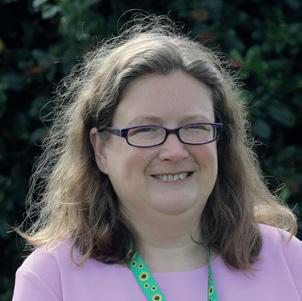 WRITTEN BY James Martin
Martina Phelan Chair, Chronic Pain Ireland
WRITTEN BY James Martin
Martina Phelan Chair, Chronic Pain Ireland
MEDIAPLANET READ MORE AT HEALTHNEWS.IE 07 AN INDEPENDENT SUPPLEMENT FROM MEDIAPLANET WHO TAKE SOLE RESPONSIBILITY FOR ITS CONTENT
Paid for by Royal Homecare Find out more at royalhomecare.ie
Pain may originally appear because of an illness or injury where you recover from the initial issue, but the pain remains.
Chronic Pain Ireland (CPI) is a national charity providing information, education, advice and support services to people living with chronic pain and those affected. To learn more, become a member or support our work, visit chronicpain.ie
Brain injury support services can help people rebuild their lives and thrive
People with a brain injury can experience a life-altering impact. However, services are available to help people make the most of their potential and improve their quality of life.
People attend RehabCare’s day, resource and respite centres to build confidence and self-belief — as per their personalised plan. We provide residential care across a number of specialist services nationally. We also support almost 200 people with an acquired brain injury (ABI) every year.
We know that every person is unique, and so is every brain injury. Our staff from different disciplines will work with you and your family to achieve your goals for recovery.
Services with a tailored approach
For many people, their hidden disability means issues accessing essential services, using public transport and managing behavioural difficulties. We provide holistic support for each person to maximise their independence, helping them to socialise and manage their health. Our work enables people to become advocates for themselves and their peers.
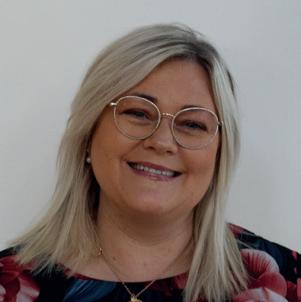
RehabCare supports people to participate in meaningful programmes within their centre and forge stronger connections outside of our facilities. For us, that is the definition of true inclusion — for each person to actively participate in their communities.
With individualised support, we empower people to live the lives they choose and make informed decisions about their future. Providing such services makes an invaluable contribution to the wellbeing and independence of those who use them.
Inclusive training programmes
National Learning Network (NLN) offers supportive training courses and community-based rehabilitation services across Ireland. Students are supported to improve their quality of life through inclusive education while establishing new opportunities in their communities.
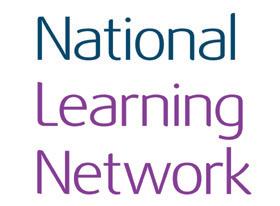
Learning to live with the impact of acquired brain injury (ABI) presents significant challenges. Survivors often make a good physical recovery, however, they may find themselves with residual secondary deficits, including personality changes, memory deficits and mood impairments.
We offer specialised modules for survivors of ABI — from stress management to psychological support. We assist individuals to re-acclimate themselves, often enabling a return to work and enhancing their independence.

Building a ‘bounce-back’ ability
A former member of NLN’s Quest service says: “I was taught the means to manage problems and assisted in building a routine that would aid in my recovery. My sessions with Quest were invaluable, building a bounce-back ability that didn’t just get me back to where I was, but brought me back better. I returned to education and graduated with my Masters. Most importantly, I was taught to be more emotionally intelligent.”

We empower people to undertake positive learning pathways. It’s the flexibility of our programmes that can make all the difference to a person with ABI.
What support is available for people diagnosed with a brain tumour?
Approximately 400 adults and 50 children a year are diagnosed with a brain tumour in Ireland.
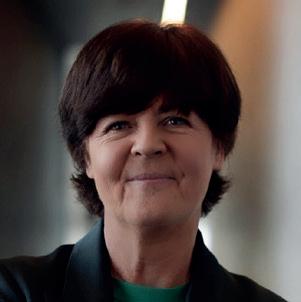
For every adult diagnosed, there is a family; and for every child, there are parents and siblings who need support. Brain Tumour Ireland can help offer that support.
Many patients who contact us have never met another person with a brain tumour, which can leave them feeling isolated and alone. With everyone in lockdown for the past two years, that feeling of isolation has been perpetuated for so many people.
During those years, we moved our patient support groups online
and started a new group for family members. Peer groups can offer a safe space for people to talk openly about the challenges they are facing. They also allow newly diagnosed patients to meet others who have experienced a similar diagnosis and treatment.
This way they can offer comfort and hope to one another. In addition, we hold wellness days, online guided relaxation to music, an annual awareness week, updates on research and our annual remembrance service.
Paediatric support for children with a brain tumour
We continue to build ways to support parents of children with a brain tumour and recently ran a ‘survey for parents’ to better inform us and the medical profession of the ‘lived experience’ and the very real challenges parents face long after their child’s treatment has finished.
The information gathered from parents has helped to shape the support services we deliver. This 2023, we will be setting up a new online support group for parents as well as a one-to-one counselling option.
At the end of each year, we bring our families together for our family day event which is held in Barretstown in December. This day is solely dedicated to having fun and is open to all children affected by a brain tumour along with their parents, siblings, grandparents, and carers.
Helping people cope after a diagnosis
We continue to develop ways to help and support children going back into education following their treatment and find ways to provide support for siblings as the family tries to navigate their way after a brain tumour diagnosis.
08 READ MORE AT HEALTHNEWS.IE AN INDEPENDENT SUPPLEMENT FROM MEDIAPLANET WHO TAKE SOLE RESPONSIBILITY FOR ITS CONTENT MEDIAPLANET
Fiona Keegan Chief Executive Officer, Brain Tumour Ireland
Brain Tumour Ireland is an organisation supporting brain tumour patients and their families and carers as well as the medical profession.
Find out more at nln.ie Paid for by
Grainne Fogarty Director of Care, RehabCare
Rehab Group
Find out more at
Lucianne Bird Director of Learning, National Learning Network
rehabcare.ie









 WRITTEN BY James Martin
WRITTEN BY James Martin



















 WRITTEN BY James Martin
Martina Phelan Chair, Chronic Pain Ireland
WRITTEN BY James Martin
Martina Phelan Chair, Chronic Pain Ireland




